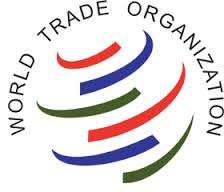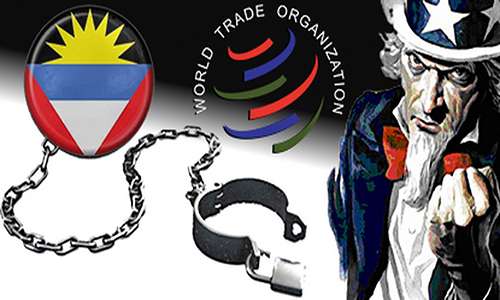Antigua to Make “Final Offer” to US in Long-Running WTO Online Gambling Dispute
Will the tiny Caribbean island nation of Antigua and Barbuda finally find a way to break its years-old stalemate with the United States over the unresolved World Trade Organization-disputed online gambling tiff between the two nations? Antigua will be applying pressure soon, perhaps as early as this coming week, if the words of Prime Minister Gaston Browne are to be believed.
 Just last month, Browne and his government rejected what was described as a “paltry” offer from the United States. Per the terms of an arbitration awarded by the WTO back in 2007, Antigua has the right to abrogate (“ignore”) the intellectual-property rights of US-based companies, up to a total of $21 million in unpaid royalties annually. The penalty, which the US has refused to formally acknowledge or pay, comes from the US’s long-standing refusal to allow Antigua-based online gambling sites to offer their services freely and openly to US residents.
Just last month, Browne and his government rejected what was described as a “paltry” offer from the United States. Per the terms of an arbitration awarded by the WTO back in 2007, Antigua has the right to abrogate (“ignore”) the intellectual-property rights of US-based companies, up to a total of $21 million in unpaid royalties annually. The penalty, which the US has refused to formally acknowledge or pay, comes from the US’s long-standing refusal to allow Antigua-based online gambling sites to offer their services freely and openly to US residents.
The legal battle has gone on since 2003, and the US has summarily ignored all attempts by Antigua to collect on the WTO judgment. Though terms of the latest “paltry” US offer have not been publicly disclosed, they were believed to be roughly equivalent to previous US non-offers, which amounted to a few hundred thousand dollars worth of pseudo-aid that would actually only benefit US business and military interests on Antigua.
In the latest developments, according to the Antigua Observer, the nation’s ambassador to the US, Sir Ronald Sanders could deliver Antigua’s final offer “within a week.” As Browne told the outlet, “We will never accept any one-sided agreement in which they treat us with contempt, and in which they fail to settle the issue in meaningful manner. We’re hoping that as a result of that proposal we’ll be able to come to a mutually satisfactory agreement.”
Unfotunately, that prospect seems unlikely. Several industry outlets have suggested that Browne’s upcoming “final offer” will include concrete plans to implement a business operation designed to collect on the outstanding WTO judgment. Antigua could produce or market their own “knockoff” copies of US-made items, free of penalty or royalties, until the value of the judgment has been reached. The WTO judgment set that figure at $21 million annually. By 2017, ten full years, or $210 million in royalty equivalence, will be available to Antigua.
The US has long decried such veiled threats from Antigua to make good on the judgment as “government-authorized piracy.” However, the US has not provided an alternative method for Antigua to collect the value of the judgment.
According to the latest reports, Browne’s government plans to issue this so-called final offer shortly, so it is on record before Browne speaks before the United Nations next month. The country’s likeliest solution is to create a “digital download” site affiliated with the government. Such a site would offer music, movies, perhaps even computer software. Browne is expected to highlight the US’s agreement-defying actions when he speaks before the international body.
“As far as I’m concerned, that is the single issue which I will want to raise at the UN if they continue to treat us with this kind of contempt… perhaps they’re going to consider Antigua & Barbuda as a nuisance,” Browne told the Observer.
The non-offer from the US Trade Representative’s Office has increasingly been viewed as an affront by Antiguan officials. Browne’s own government tried a more diplomatic approach with the US when he came to office in 2014. However, the US’s intractability has forced Browne’s government to switch to the hardline position. That position on the WTO dispute is now the same as that proffered by Browne’s PM predecessor, Baldwin Spencer.
Whether or not Antigua ever succeeds in collecting on the long-owed US debt, it remains doubtful that the island’s once-robust online-gambling industry will return to its former heights. At one time, that industry accounted for about a third of the island nation’s annual GDP.
However, that industry has been at least halved in the decade since the UIGEA was passed. The UIGEA, for its part, was found by WTO arbiters to be a continuation of the US’s agreement-breaking pact with Antigua and other WTO member nations, several of whom remain signed on with Antigua and Barbuda as states with possible financial interests in this never-ending dispute.




















COMMENTS